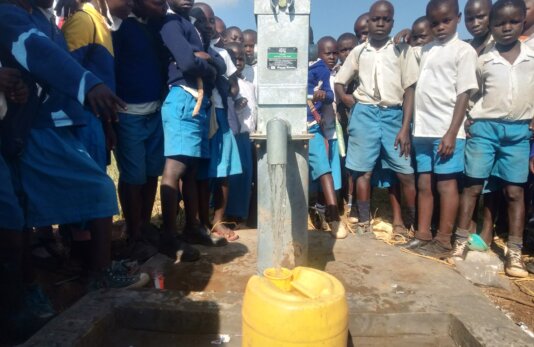FairPlanet.Support
| topic: | Humanitarian Aid |
|---|---|
| tags: | #Sub-Saharan Africa, #water, #well boring, #donation |
| located: | Kenya, Sierra Leone, Uganda, Zambia |
| by: | Quinta Thomson |
WellBoring, a collaborative initiative of a UK charity and local NGOs, is tackling the issue of water access head-on, under the motto "Where there’s a will, there’s a well."
According to UN Water, in sub-Saharan Africa only 24 percent of people have access to safe water. In Kenya, for instance, 9.4 million people use contaminated water sources. What’s more is that even in communities with access to safe water, the burden of travelling vast distances to collect it often lands on women. In turn, women’s education and livelihoods suffer.
WellBoring utilises untapped underground sources of water to fund, drill and install wells in rural primary schools. Although primarily working in Kenya, Uganda, Sierra Leone and Zambia, with further support the organisation is hoping to move into Gambia. In carefully selecting locations based on geological and community concerns, Wellboring utilises research and training to ensure sustainability.
The NGO builds wells upon a demand basis - where they are most needed and most likely to be maintained by the community. But before blindly drilling in a new location, a hydro-geological survey is commissioned, determining the quality and availability of water in a specific area.
Wellboring’s structure relies on partnership, making each well an investment of the community.
These projects are powered and funded by volunteers, donors and partnerships with businesses. Without this support, they would not have been able to deliver safe water to more than 200 schools or continue on the path of achieving a hydrated Africa.
You can make a donation to WellBoring and help a community access their groundwater. Alternatively, you can support the organisation on their social media pages: Facebook, Instagram, and Twitter.
Image by Erick Omollo / Starlink Media.
By copying the embed code below, you agree to adhere to our republishing guidelines.
